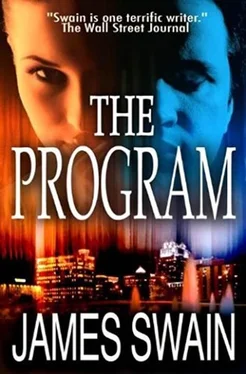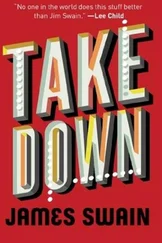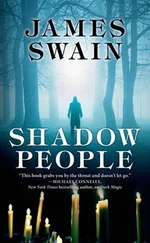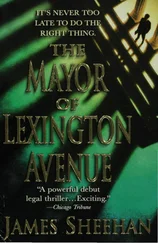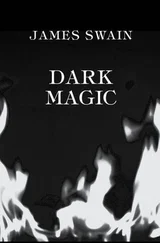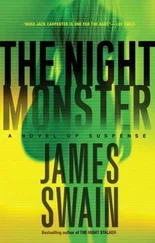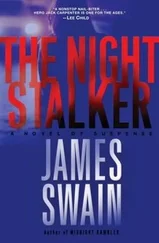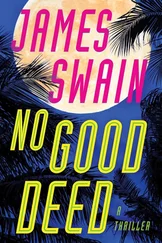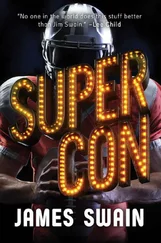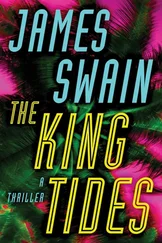“Please be more specific,” Vick said.
“We have fifty-four drivers the last time I counted. We’re open twenty-four hours a day, seven days a week, and run three eight-hour shifts a day.”
“How many of your drivers are Cuban males?” Vick asked.
“Geeze, that’s a good one. At least twenty guys who drive are Cuban.”
“How many work at night?” DuCharme chimed in.
“They all do,” Regli said. “We alternate the times that they drive.”
“I need for you to print up the names of all your drivers,” Vick said.
“How about if I give you a copy of the payroll sheet. That has the drivers’ names and addressees and social security numbers.”
“That will work,” Vick said.
Outside in the car, Vick and DuCharme poured over the AMR payroll sheet. By culling out the non-Latino names, they were left with exactly twenty drivers.
“This is a lot of names, and it’s only the first ambulance company we’ve called on,” DuCharme said. “What do you want to do?”
Vick’s first thought was to call the FBI’s communication center in D.C., and have them run the twenty names through their criminal data bases to see if any matches popped up. If that didn’t work, the bureau could also cross-reference the names against other data bases, including gun registration information, protective and restraining orders, commercial licenses, etc.
It was a good idea, but not thorough enough. The police and FBI had been hunting for Mr. Clean for a quarter century, and been unable to track him down. More than likely, he didn’t have a criminal record.
But Mr. Clean still might have slipped up. Nearly all criminals did. Vick needed to run the names against the Broward Sheriff’s Department criminal data base, and the Miami/ Dade and Palm Beach police data bases as well. Local police departments did not report misdemeanor arrest information to the FBI, and her gut told her that Mr. Clean had done something that had briefly landed him in hot water.
“We’ll need to get lists of drivers from all six companies, take them back to police headquarters, and run background checks on them,” Vick said. “We’ll check the names against local police data bases and see what pops up. We can also get photographs from the Department of Motor Vehicles, and compare them to our composite of Mr. Clean.”
“That could take all night,” DuCharme said.
“You’ve got something else on your social calendar?”
They spent the next two hours driving around the county visiting the other five ambulance companies on the list. Each company closely resembled AMR, right down to the smelly offices and chain-smoking dispatchers. Soon the number of names of Cuban ambulance drivers was well over a hundred.
At a few minutes past midnight, Vick pulled into the parking lot of the last company on the list, Emergency Medical Services. EMS worked out of a storefront on a quiet street in Sunrise, and she could see a man sitting behind a desk inside a shabby office. It had been a long day, and her energy was ebbing away. She smothered a yawn.
“Why don’t I go in and talk to this guy?” DuCharme suggested. “You look worn out.”
He has a nice side, Vick thought. What a surprise.
“That would be great,” she said.
DuCharme got out of the car and headed up the path. He turned around, and walked around to the driver’s side of the car. Vick lowered her window.
“I just remembered something.” Reaching inside his sports jacket, he removed two folded sheets of fax paper, and handed them to her. “These were in the fax machine tray when I got to work. They’re for you.”
“Thanks, Roger.”
DuCharme walked up the path and entered EMS’s office. He showed the dispatcher his badge, and the dispatcher hung up the phone and smiled nervously. It was the way most people acted when confronted by the police, and she paid it no heed.
Vick turned on the overhead light in her car, and read the cover page of the fax. It was from the company in San Francisco that distributed Swiss Sig bayonets in the United States. Per her request, the company had done a records search of the Swiss Sig bayonet that had killed Jewel Ladd’s boyfriend, and sent her the purchase form.
The purchase order was stapled to the cover page. The typeface was faint, and she held it up to the light. The buyer was Adam Ladd, Wayne’s older brother. It was all there – date, time, amount paid, when the bayonet was shipped, tracking number, everything.
She switched off the light and stared into space. The murder weapon had belonged to Adam, not Wayne. Had Adam talked Wayne into killing the mother’s boyfriend? It made sense, and added fuel to her belief that Wayne had been coaxed into committing this horrible crime.
Hearing a voice, she looked up. DuCharme was coming down the path. The detective had someone with him.
Renaldo was ready to call it a night.
His shift had been filled with car wrecks with multiple injuries. Normally, he enjoyed looking at the twisted bodies as they were put into his ambulance. But tonight he’d gotten no thrill out of seeing the injured. He was taking tomorrow off, and had a full day planned with Wayne. He needed to go home, and get ready.
Then his cell phone rang. It was an ambulance driver that he knew named Sid.
“You hear the news?” Sid asked, sounding scared.
“What news is that?” Renaldo replied.
“An FBI agent and a sheriff’s detective are visiting the ambulance services, asking for lists of the drivers. I think they’re looking for me.”
“What did you do?”
“My girlfriend put a restraining order on me for beating her up, and I violated it.”
Renaldo ended the call knowing he was in trouble. The FBI did not chase men who slapped around their girlfriends, but they did pursue those who cut people’s heads off. He’d pulled into a fast-food restaurant. He worked with two medics named Harry and Tommy. Harry and Tommy got out of the back of the ambulance, and went inside to get something to eat. They asked him if he wanted anything. Renaldo said no.
Turning on the radio, he dialed through the Spanish-speaking stations until he found one playing traditional rumba music, and turned the volume up high. He’d grown up listening to rumba, and it helped him think.
He had known that this day would eventually come. You could not kill prostitutes for as long as he had, and not expect to get caught. Only fools believed that the police would never find them.
Renaldo was not a fool. He had prepared for this day. Inside his house was a shoe box filled with cash; in his garage, a 4-wheel drive SUV with tags registered in his sister’s name that he renewed every year. His getaway car.
He would flee.
He had a place to escape to – a small, cinder block house in the center of the state, not far from a migrant farm camp where his dark skin blended right in. He’d been visiting that little house for years, stocking up on canned food, installing solar panels and a generator, getting ready for the day when he’d need to get off the grid.
That day had come.
But first he needed to cover his tracks.
The police did not know which ambulance company he worked for. If they had known, they would have already arrested him. The police would have to comb through the lists of drivers, and pick “persons of interest”. Then, they’d winnow those lists down to a few names, and haul those drivers in. That was how the law worked.
It would take time, and time was always on a criminal’s side. He had read that somewhere, and committed it to memory.
He would use that time to facilitate his escape.
His shift ended at midnight. His employer, Emergency Medical Services, was located on a back street in Sunrise. He parked the ambulance in the garage behind the building, and said goodnight to Harry and Tommy. Going inside the main office, he signed the log sheet, and struck up a conversation with Joey, the dispatcher.
Читать дальше
